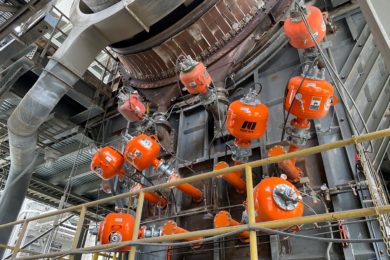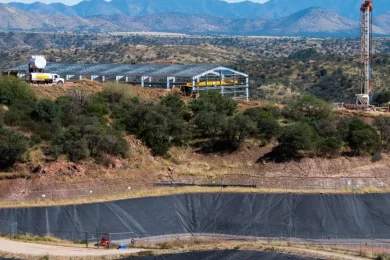Last week Peabody Energy offered an update on coal fundamentals and its positioning given recent global and domestic industry events. “We believe there is a fundamental mismatch in early reporting regarding China’s new coal quality policies relative to the emerging view of its likely beneficial effects on Australian high-quality coal exports,” said Peabody Energy Chairman and CEO Gregory H. Boyce. “In addition, global announcements of metallurgical coal supply reductions continue to build, and we have seen a sharp increase in Indian thermal coal imports in recent months. And in the US, Peabody is encouraged by recent Southern Powder River Basin coal supply agreements that are being signed well above those of published indices, as customers end the summer with stockpiles at their lowest levels in nine years.”
Regarding global coal, Peabody joins other Australian producers in believing that emerging Chinese policies regarding thermal coal qualities are likely to benefit Australian coal exports due to Australia’s superior coal qualities. Based on current information, Peabody expects China’s recent policy to have no negative impact on the company’s coal export volumes. Also, the most restrictive aspects appear to apply to a limited number of coal users that lack emissions controls. The policies also are expected to reduce China’s domestic coal supplies, which could lead to greater imports of higher-quality thermal coals. Peabody applauds China’s continuing actions to address emissions by greatly increasing demand for coal within power plants with control technologies, while reducing coal for use in direct applications that are emissions intensive.
In India, thermal coal imports are rising faster than expected. More than half of India’s power plants report less than seven days of coal supply, leading to increases in India coal imports in both July and August over prior-year levels. Domestic supplies remain challenged, and the new government has expressed continued interest in advancing policies to drive far greater electricity access going forward.
Regarding metallurgical coal fundamentals, the company is encouraged by recent China stimulus measures and steel production. Following a weaker August, early September China steel production is up more than 7%. In addition, announced global metallurgical coal supply reductions are continuing. Peabody has raised its estimate of industry supply reductions; approximately 25 to 30 Mt of metallurgical coal reductions have been announced in 2014, representing nearly 10% of the seaborne supply. Metallurgical coal fundamentals are expected to improve as the majority of these announced reductions would be realized over the next two quarters.
In the US, Peabody expects its third quarter Powder River Basin shipments will be above second quarter levels on improving rail performance. Monthly shipments improved throughout the summer and are benefiting from greater investments by carriers. Powder River Basin demand remains strong as it is competitively advantaged to natural gas generation at gas prices above $2.50 to $2.75/mmBtu, and improving rail performance is expected to result in higher Powder River Basin demand in 2015.
Peabody anticipates 2015 Powder River Basin revenues per ton to be higher than 2014 realisations due to strong contracting strategies built on layering in sales at attractive price levels. Based on recent transactions, Peabody is now signing Powder River Basin contracts at materially higher levels than published indices that are not reflective of physical markets.
Peabody Energy is the world’s largest private-sector coal company and a global leader in sustainable mining, energy access and clean coal solutions. The company serves metallurgical and thermal coal customers in more than 25 countries on six continents.
The picture relates to Peabody Energy and China’s Shenhua Group entering into an agreement to create Sino-Pacific Coal Trading Corp, a Singapore-based joint-venture company that will supply Shenhua’s growing coal import demand with thermal coal from Peabody’s platform.









